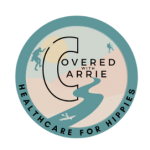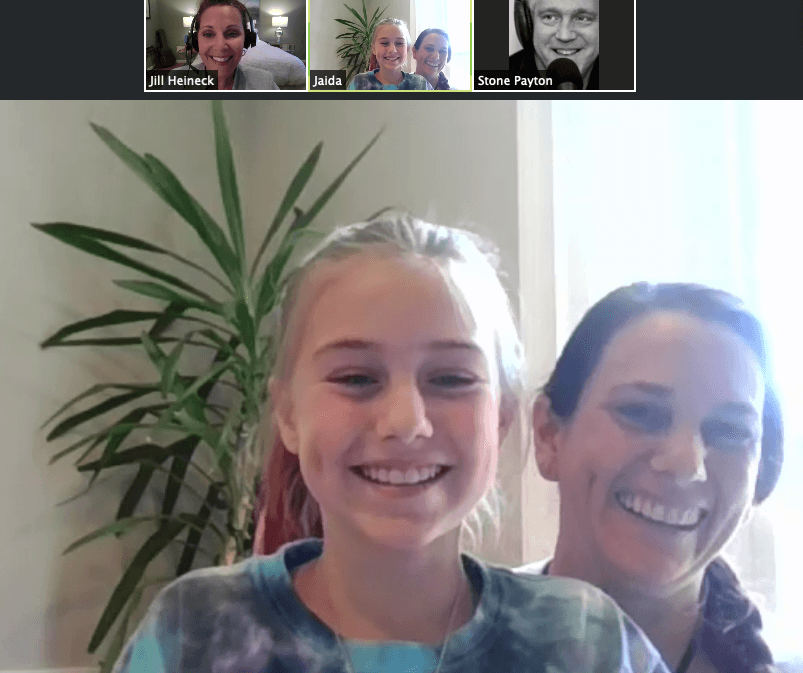
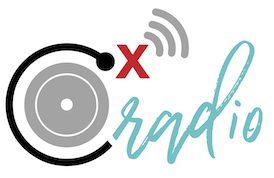
 KIDS CARE was started by mother-daughter duo, Jaida and Amie Burke. An 8-year-old girl wanted the world to know that KIDS do CARE. One day she made an acrostic poem for the word KIDS.
KIDS CARE was started by mother-daughter duo, Jaida and Amie Burke. An 8-year-old girl wanted the world to know that KIDS do CARE. One day she made an acrostic poem for the word KIDS.
Without any help at all, she created Kindness In Doing Service for the word KIDS. And after a delicious discussion on kid’s community service, the mother/daughter duo created the second half of their name, CARE, which stands for Connecting And Respecting Everyone.
KIDS CARE was then born and Jaida’s missions are being heard and supported so that she can lead the way to serve the community in a way that a kid wants too. And what better way to do this than with other kids, families, and friends. Lead on KIDS! Lead on!
Follow KIDS CARE on Facebook and Instagram.
Transcript
Intro: [00:00:01] Broadcasting live from the Business RadioX studios in Atlanta, it’s time for Customer Experience Radio. Brought to you by Heineck & Company, real estate advisors specialized in corporate relocation. Now, here’s your host, Jill Heineck.
Jill Heineck: [00:00:18] Welcome to this very special edition of Customer Experience Radio. I’m your host, Jill Heineck, and I’m a business owner, real estate advisor and customer experience enthusiast. We have two very special guests on the show today. They are incredible people that I’ve come to know and adore as I’ve been fortunate to work with them during their relocation to Atlanta six years ago. I’m super excited to have 10-year-old Jaida Burke and her mom, Amie, on with us today. They are the founders of the non-profit organization KIDS CARE that was started because Jaida wanted the world to know that kids do care. KIDS stands for kindness in doing service and CARE stands for connecting and respecting everyone.
Jill Heineck: [00:01:04] Q99.7’s The Bert Show got wind of the good they were doing with their new initiative called The Kindness Cards, and had them on the show in April of this year. And I was just so impressed with Jaida and her passion behind it, I just had to have her on. Hi, guys.
Jaida Burke: [00:01:22] Hi.
Amie Burke: [00:01:22] Good morning, Jill.
Jill Heineck: [00:01:22] I’m so happy you’re here, and I cannot wait to dive in and talk about the fantastic program that you have rolling here. So, Jaida, why don’t you talk to us just a few minutes about how this all came about? I think you’re just eight years old when you decided that this is something you wanted to do. And that was exactly two years ago yesterday.
Jaida Burke: [00:01:46] Yeah. So, we were actually driving in the car, and I’m homeschooled. So, actually, my mom’s like, “Hey, why don’t you make an acrostic poem?” And I’m like, “Okay.” So, I chose the word kids, and I made kindness in doing service. And she was like-
Amie Burke: [00:02:00] Yes. And I almost had to pull a car over immediately. She told me that in about two minutes, and I had to ask her, what does that mean to you? What are you thinking as an eight-year-old? What does that mean? And so, we had a really great conversation about it. And then, she talked about how she wanted to get kids together in a club, so that we could do community service. And she wanted to come up with the ideas, and she wanted other children to come up with the idea. So, like I said, I gave her a high five and I said, “Let’s do it.”
Jill Heineck: [00:02:29] I love it. I love it.
Jaida Burke: [00:02:32] And then, later on, I came up with care.
Amie Burke: [00:02:34] Yeah. So, yes.
Jill Heineck: [00:02:35] So, what was like one of the first projects that you did?
Jaida Burke: [00:02:40] We did a book drive. We had some people go around their neighborhood, and we actually went around our entire neighborhood, knocked on every door and was like, “Hey, can you give us some books?” We gave them to, I think, five organizations.
Amie Burke: [00:02:53] Yeah, we did. And we got over a thousand books. And we were not a nonprofit at that point. We’re just kind of a little group. So, it was after that, the success of that project that I was like, “It worked. But we’re going to keep rocking success here. We’re going to just become a non-profit, so that we can get and give easily.” So, then, in January of 2019, we incorporated and have been doing goodness since.
Jill Heineck: [00:03:18] So, are you now a 503?
Amie Burke: [00:03:20] Yes, yes. Starting in January of 2019, we are. Yeah.
Jill Heineck: [00:03:23] Fantastic.
Amie Burke: [00:03:25] Yeah.
Jill Heineck: [00:03:25] So, what’s been your favorite part so far, Jaida?
Jaida Burke: [00:03:28] Well, I’m actually liking this a lot. It’s really nice. It feels good.
Amie Burke: [00:03:36] Yeah.
Jill Heineck: [00:03:36] So, now, talk to us a little bit about the Kindness Card Program that you’ve been working on, particularly during this really hard time we are during the pandemic. And who are you trying to bring this kindness to?
Jaida Burke: [00:03:48] The story behind this is we are actually sitting in this room and thinking, “What are we going to do?” And I’m like, ‘Well, we already did our kindness cards for the military troops overseas.” So, I’m like, “We already know how to do cards, so why don’t we do cards?” So-.
Amie Burke: [00:04:07] Yeah. And we had talked a lot about quarantine, and staying at home, and what that means; yet, there were people that couldn’t stay at home. And who were those people and what were they doing? So, when we were discussing that, she was like, “Kindness cards, for sure. We can do that.” That is something that we can safely do at home. And I managed to get a hold of someone at Kennestone Hospital, and they ensured us that bringing cards to them was not a safety issue. So, we decided or I decided, I was like, “Well, okay. If we do a drive-by-and-drop-off program, people can really just stay in their car, drop it in the box, and then we quarantine it for 24 hours. And then, we separate the cards into the different frontline workers, and deliver them from that point.” So, that has been working out really well.
Amie Burke: [00:04:51] But really, what kind of sparked it was talking about those frontline workers and things that they have to endure about being away from family, working overtime. It’s a stressful period for them. And we said, “You know what? Jaida was right.” Right from her heart, let’s make smiles. Let’s just make some smiles. That’s easy to do.” So I said, “Yeah, it is. Let’s do it. We know how to do that.” So, this is kind of what we’re doing now is trying to create some smiles and just send moments of encouragement to those who are working on the frontlines.
Jill Heineck: [00:05:21] So, tell us a little bit about who has been receiving these cards?
Jaida Burke: [00:05:27] Well, we are sending about all the first responders and frontline workers. So, we’ve got not only one dispatch, we’ve got police, we’ve got a fire, and we have a Kennestone Hospital, which is nurses and EMS, so.
Amie Burke: [00:05:43] Yeah. We, so far-
Jill Heineck: [00:05:43] fantastic.
Amie Burke: [00:05:47] Yeah, we’ve delivered— do you want to tell them how many we’ve delivered so far?
Jaida Burke: [00:05:50] So, so far, we’ve given 293 cards.
Amie Burke: [00:05:55] Yeah.
Jill Heineck: [00:05:57] Wow!
Jaida Burke: [00:05:57] And then, from our last drive, we have 102.
Amie Burke: [00:06:00] Yeah.
Jaida Burke: [00:06:00] So, we’ve got about 395.
Amie Burke: [00:06:03] Yeah. Tomorrow, we’re going to go-.
Jill Heineck: [00:06:04] That’s incredible!
Amie Burke: [00:06:06] … deliver about 102. So, yeah, we’re close to 400 cards. And I know with talking with Jaida, we don’t really like to stick to a number. We just kind of— though people ask us what our goal is, and we can throw a number out there, but, really, what we can do from our own kindness hearts is the best that we can do, and we ask that of the community as well. Like, “Can we get people to step forward and write some words of encouragement, color some pictures. These are simple kindness acts that we can do that really make a difference in somebody’s day.”
Jill Heineck: [00:06:39] Fantastic. So, what areas of the Atlanta market or area are you delivering to at the moment?
Amie Burke: [00:06:47] Right now, we’re mostly in Cobb County. However, we had someone reach out in Jackson, Georgia. And she has a nonprofit, and it’s called it’s called the Life Enrichment Team. And so, they were really inspired by what we’re doing, and they’re doing it now in Butts County. So, anyone in Butts County can look on our website at kids-care2018. org, and there’s information there. But, also, we’ve got East Cobb, West Cobb. Just breaking news, we got two new places that are due to pick up, drive by, and drop off – one in Woodstock and another one in Marietta, so.
Jill Heineck: [00:07:28] Nice.
Jaida Burke: [00:07:28] And Carol Wilson Fine Art Inc has reached out to us, and they have donated some actual, like, not handmade cards but-
Amie Burke: [00:07:36] Greeting cards.
Jaida Burke: [00:07:36] … greeting cards. And we have like 69 of them. And she’s willing to— she’s got an email right here, and she’s willing to have anyone send her an email with the note that they want to put in, and she’ll handwrite it in a card and send it to us.
Amie Burke: [00:07:57] That’s right.
Jill Heineck: [00:07:57] So, she must have beautiful handwriting.
Amie Burke: [00:08:02] And she has beautiful greeting cards that her and Jaida went through and picked out specific cards for the mission. And it’s an incredible offer that she’s doing. And that information is all up on our website as well. But from that, I think Jaida’s point was as we have gotten messages from people from all over the state, actually, from that information being passed out on The Bert Show and, hopefully, today on your show, more beautiful people is sending some messages. They don’t have to leave their home. Those messages will get delivered. We’re going to try to spread the love a little bit more as we’re getting more cards. We’ve donated quite a few to Kennestone Hospitals. So, I think we’re going to move on to another hospital. Same with when we deliver cards to the police and fire, we try to pick different departments and hand them out that way. So, it’s kind of a spur of the moment thing. At first, it was all planned out with this, this one, this one. But Jaida, do you want to tell him about what happened last Wednesday when we had to pick up?
Jaida Burke: [00:08:57] Oh yes. So, here’s the story. So, we were sitting in Laurel Park and a prisoners’ transportation truck went by, and I was like, “Uh-oh, we’re in trouble.” Just joking around a little. And then, he turns around and pulls up and we’re like, “Uh-oh, I think we’re actually in trouble.” And he comes up, and we’re like, “We got cards for you.”
Amie Burke: [00:08:57] Yeah, we said, “We got cards for you,” because we had a bag of like 30 cards that we were going to deliver to the police department that day. We were just waiting for a few more. And so, we had a really beautiful conversation with him. And that really led to a magical day, actually. We were there for our drive by and drop off. So, Jaida and I set up our table. And then, we go hang out on a blanket and we wait. And he drove by, and he stopped, and he said, “This is just really awesome what you all are doing. Thank you so much. It really means so much to us.” So, that was really cool. And he wanted to give us a donation out of his own pocket. He was trying to give us his last dollar. And we were like, “No, no, we’re supposed to givng to you.”
Jill Heineck: [00:08:57] Right.
Amie Burke: [00:10:02] Nice moment. And then, he said, “I’ll be right back. How long are you gonna be here?” So, we said about an hour. And so, he sent an email out. And then, 15 minutes later, we had another police officer show up. And he got out of his car and was like, “This is just so awesome. Thank you so much. We love the cards. It means so much.” And it was really need to be able to talk to him six feet apart, of course. We spoke to him, and he really told us about how the days are stressful, the days are long. It’s hard at work and it’s hard at home because they are exposed.
Amie Burke: [00:10:35] So, they have to go home. And sometimes, they don’t have an opportunity to quarantine in a separate part of the house because maybe houses aren’t that big. So, being at home is stressful for them. Being with the public who is stressed out can be stressful. So, he said, “We can get some things delivered to us, but words of encouragement are so special and they go right to our heart. So, thank you so much.” So, that was magical. He left. And then, we had another officer pull in and do the same thing. And it was so awesome. You want to tell them about the foot fives?
Jaida Burke: [00:11:09] Yeah. So, instead of the elbow five, because that like makes contact and you have to get all close, we came up with the foot five. So, this is one person’s foot, this is the other, and high five.
Amie Burke: [00:11:18] And you lean away from each other when you’re foot-fiving. So, we’ve got some foot fives with the officers, and we made them smile. And it wasn’t just us. It was the people that made the cards because we had that bag of 30 cards. That wasn’t just us. We definitely add some cards in there, but it’s the community that’s coming out and dropping cards, drop a handful of cards, drop in two cards. Every card makes a difference. It really does.
Jill Heineck: [00:11:44] It’s such a phenomenal program. I love it so much. So, what I wanted you guys to tell us a little bit more about, so our listeners can engage wherever that they can, tell us a little bit about how someone can get involved either from just a writing card’s perspective, or wanting to be a drop off or pick up, or how can we help? And what are your needs at the moment?
Amie Burke: [00:12:13] Okay. Do you want to start about these cards, Jaida?
Jaida Burke: [00:12:18] You go.
Amie Burke: [00:12:18] Well, we need people to make cards. That’s our first one. We talked about this before we got on air and we said, “We need people to make cards.” And Jaida wrote down a couple things that she wanted to mention.
Jaida Burke: [00:12:32] I wrote down all kinds of cards we’ve had. We had watercolors. We’ve had crayons. We’ve had colored pencils. We’ve had stick me in portraits. The opportunities are endless. I mean, we’ve got glitter ribbons, pipe cleaners, glue, sharpies, pencils, anything.
Amie Burke: [00:12:51] So, making cards at home is an awesome thing. And even if you can get your neighborhood to do it and just put them in a drop box at the end of your driveway, or if you can organize any bit of collection as far as a personal person wanting to volunteer and help out gathering cards is kind of the thing that we need right now.
Amie Burke: [00:13:08] Also, sharing the information like you are doing so kindly for us, Jill. Sharing the information, so that way people understand what’s going on, and how to get those cards to us, so we can get them to the first responders. As far as any businesses that might be listening and want to help, becoming a drop off spot is awesome because the more we can get on that front, the more people can participate without having to drive too far to drop off the homemade cards. Also, we ask that the businesses possibly help share the word as well because spreading the word is going to create more kindness cards.
Jill Heineck: [00:13:45] What a great way that we could kind of tie that in from a business perspective is to maybe find a few restaurants that are doing curbside pickups.
Amie Burke: [00:13:56] Agreed, agreed.
Jill Heineck: [00:13:56] And see if there is a way that we can double back, right, and help everyone.
Amie Burke: [00:14:03] Right, right.
Jill Heineck: [00:14:04] That would be a fantastic way to do it. So, we can explore that for sure.
Amie Burke: [00:14:08] Yeah.
Jill Heineck: [00:14:09] I just love this. So, what you’re saying, Jaida, is that I can just be sitting at my desk, and I can just pull out my Crayolas and a piece of construction paper, and make a card, and you’ll accept it?
Jaida Burke: [00:14:24] Mm-hmm. Uh-huh (affirmative).
Jill Heineck: [00:14:24] Okay.
Jaida Burke: [00:14:24] Of course! It doesn’t take very long.
Jill Heineck: [00:14:30] Oh good because that’s probably all I got.
Amie Burke: [00:14:34] It really doesn’t take long. And we are actually-
Jill Heineck: [00:14:34] So, are you having a lot of— I mean, I’m guessing that your neighborhood’s very fully engaged with this knowing that they have a rock star in the neighborhood.
Jaida Burke: [00:14:49] No, not really, actually, but-
Amie Burke: [00:14:51] Not as much as we’d like.
Jaida Burke: [00:14:53] We’ve tried to put the word out. Well, I only had a couple people reach out.
Jill Heineck: [00:14:57] Okay.
Amie Burke: [00:14:59] Yeah.
Jill Heineck: [00:14:59] Okay. I mean, it does take time.
Jaida Burke: [00:15:00] You know, we tried.
Amie Burke: [00:15:00] Yeah, but we had-
Jaida Burke: [00:15:00] It does take time.
Amie Burke: [00:15:01] We had other neighborhoods and we’ve had people show up with a stack of 50 cards that they’ve gotten from their own neighborhood. So, yeah, it’s-
Jill Heineck: [00:15:11] That’s fantastic. So, now, is there any other ways that you’re getting out to try to get more cards and to let people know more about this? What other channels have you guys been kind of talking about your program?
Amie Burke: [00:15:27] Yeah. Through social media, for sure, on our social media assets. Also, I’ve got to— I’m sorry, I keep saying that. We’ve got it on Patch and we’ve also got it on the neighborhood as well. And I think that’s about what we’ve got right now. We’d like to keep trying to spread the word. We’d love to get some teachers involved, some scouts, some churches, youth groups, neighborhoods, classmates. So, if the word could get spread around that way, even through social media, that would help us a lot because, like we keep saying, the more cards we get, the more smiles that we’re making for those frontline workers who are there for us, and they’re there for our family, and they’re there for our community, and they’re working hard and tirelessly. And that’s the whole important part of this.
Jaida Burke: [00:16:10] And not only the people who get the cards feel good. The people who make the cards also feel good.
Amie Burke: [00:16:16] Yes.
Jaida Burke: [00:16:16] They’re spreading that.
Jill Heineck: [00:16:18] That’s true.
Jaida Burke: [00:16:19] Everyone is better.
Amie Burke: [00:16:21] Right.
Jill Heineck: [00:16:22] Jaida, so, what is your vision for Kindness Cards down the line? So, we’re in this time right now, and we probably will see— we’ll probably be like this maybe for another four to eight weeks potentially. So what happens after that?
Jaida Burke: [00:16:40] We, actually, are thinking about doing another book drive. We’ve had a couple people who reached out, like, “Hey, let’s still do it. Hey, we have books.” So, we might do another book drive and-
Amie Burke: [00:16:53] Yes. We also are talking about doing a sneaker run. We’re kind of thinking about this thing, a project called the Sneaker Run, where we collect donated sneakers and give them to a non-profit called Eco Sneakers, and they recycle them, and give them back out to people who need them. So, we’re kind of kicking around some new ideas. But right now, we’re elbow deep into the Kindness Cards and really trying to stir up some kindness. It’s just such an easy, free project for people to do. And I don’t just mean projects like that, but really, really raising the vibrations for people around you. It also gives you something to focus on positively and to share that with the frontline workers to lift their spirits. It’s so important.
Jill Heineck: [00:17:38] I love this so much. I think it’s such a phenomenal project. And I think you’re talking about raising vibrations and giving out good vibes, it’s-
Amie Burke: [00:17:49] Yeah.
Jill Heineck: [00:17:49] I could feel it through the Zoom call.
Amie Burke: [00:17:53] Oh, good. Look, I’ve got a quote I’d like to read for you, if you don’t mind.
Jill Heineck: [00:17:55] Sure.
Amie Burke: [00:17:55] Okay. And I made this quote. But it’s something that came to me earlier on in the project. And I think it’s really important. So, I’m going to read it. It says that, “We are all powerful. Our words, our body language, our thoughts, our actions, our hearts, all knowingly and unknowingly impacting those around us. Please remember to power up some kindness to those around you. Take time to care. And thank you to all that do.”
Jill Heineck: [00:18:25] Oh, I love that. Thank you so much-
Amie Burke: [00:18:28] Yeah.
Jill Heineck: [00:18:28] … Amie and Jaida. Thank you so, so much.
Jaida Burke: [00:18:32] [Crosstalk].
Amie Burke: [00:18:32] Yeah, Jaida wants to share hers.
Jaida Burke: [00:18:32] Will you please tell us where everyone can find you? So, give us any social channel handles, and email, and web addresses, and all that.
Amie Burke: [00:18:47] Yes, ma’am. So, our website, kids-care2018.org. And there is a special section on that website for Kindness Cards. It’s got a drop down menu. It’s got all the locations, times, dates. It’s got the Free Handwritings service from Carol Wilson Fine Arts. And it’s got everything you need. It’s got Google Map Link. So, go to that website. Facebook, you can find us on Facebook at KIDS CARE 2018. You can find us on Instagram, @kc2018org. And you can email us at kc2018org@gmail.com.
Jill Heineck: [00:19:27] Awesome. I am so happy. I mean, this experience for our frontline workers is already very, very hard. And I think you’re making this a little bit easier for them. And it’s just such a special program. And I so appreciate you taking the time to talk with me about this. It’s very moving, and I love that you are so committed to it, and taking care of everybody around you. And I’m just honored to know you.
Amie Burke: [00:20:02] Yeah. Thank you, Jill. Thank you. It really is something positive for people to focus on. And it’s an easy action that people can do because a lot of people are still at home and we are at home, this is something we can do. This is something our neighbors can do. This is our families can do. And even if people say they’re in their family, and you have family members in another state, it’s something they can do as well actually. You can just drop the cards off and you can send them in mail. It’s just an easy program for people to participate, to feel good. And then, like Jaida says, it’s not just the one person making the card that feels good. It’s the people making it and the people receiving the card. It’s just a positive thing to focus on. And we all need to focus on positive and raise these vibrations in the spirits of everybody around us.
Jaida Burke: [00:20:51] And I’d like to say, my quote is everyone can be kind. It’s like having a superpower.
Jill Heineck: [00:20:51] That is fabulous. I absolutely adore that quote so much. I want you to send me an email with that quote in it, okay? I’m going to use that in every communication. And I’m going to quote Jaida Burke. You will, now, be famous. Well, again, thank you guys so much. And I just wanted to thank everyone for listening today and really taking the time out to hear about this fantastic program. I’m proud to share this show with you as these stories prioritize what people are doing in our community and helping to make this experience much more impactful for the frontline workers, as well as the people that they are serving. And this is really the heart of where our communities are. And we thank you so much. So, thanks, everyone, for listening. Have a great day.
Amie Burke: [00:21:57] Thank you.
Jaida Burke: [00:21:57] Thank you.
About Your Host
 Jill Heineck is a leading authority on corporate relocations, and is highly sought after for her real estate industry acumen and business insights. As a published author, frequent panelist and keynote speaker, Jill shares her experience and perceptions with people from around the globe.
Jill Heineck is a leading authority on corporate relocations, and is highly sought after for her real estate industry acumen and business insights. As a published author, frequent panelist and keynote speaker, Jill shares her experience and perceptions with people from around the globe.
Jill is a founding partner of Keller Williams Southeast, established in 1999, and the founder and managing partner of Heineck & Co. Her real estate practice specializes in corporate relocations, individual relocations, luxury residential, and commercial properties. Jill’s analytical approach to problem-solving, along with her expert negotiation skills and sophisticated marketing, deliver superior results to her clients. Her winning strategies and tenacious client advocacy have earned her a reputation for excellence among Atlanta’s top producers.
While Jill has received many accolades throughout her career, she is most gratified by the personal testimonials and referrals she receives from her clients. Jill’s unwavering commitment to the customer experience, and her focus on the unique needs of each client, serve as the foundation of her success.
Follow Jill Heineck on LinkedIn.
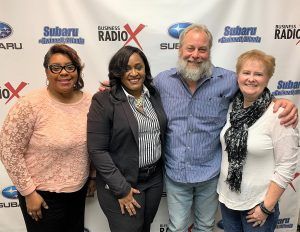
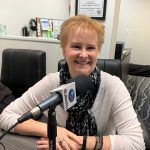 It is the mission of
It is the mission of 
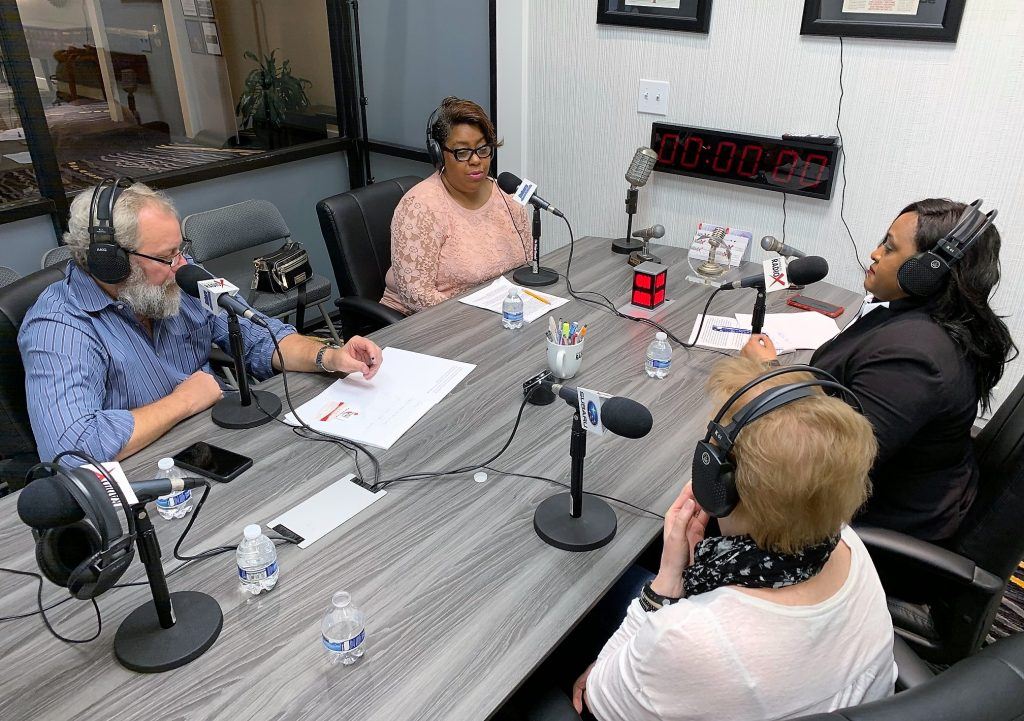
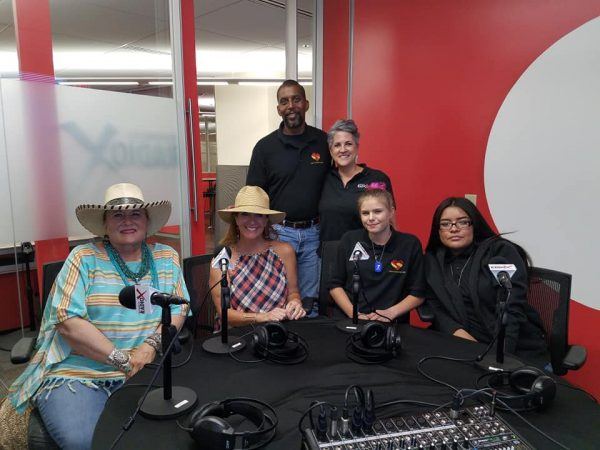
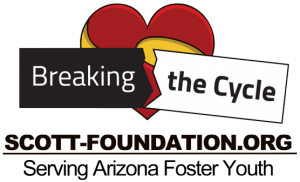
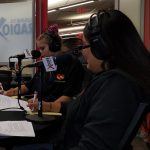
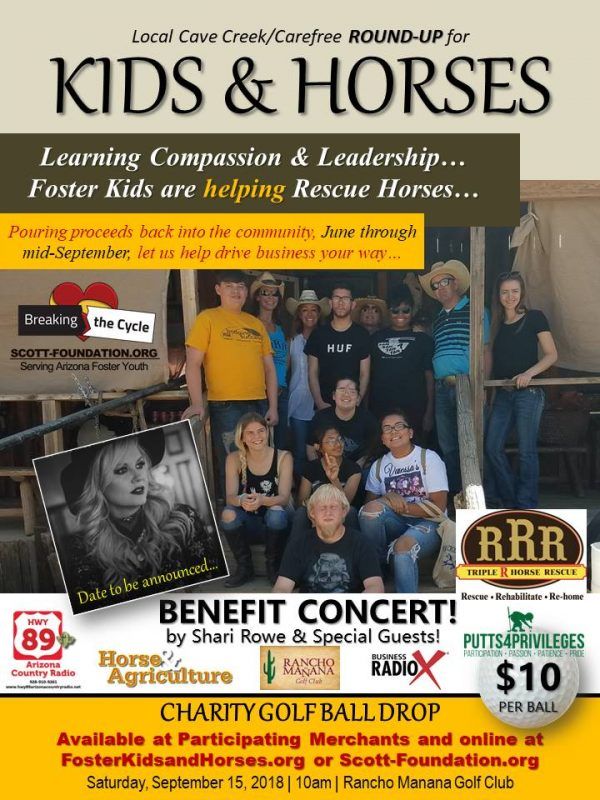
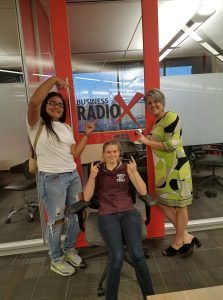
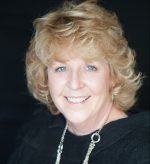 Colleen Walski, Former Intel Manager, turned entrepreneur, who’s founded a philosophical service learning organization that also serves the social emotional well-being of youth in the Arizona foster care system; free of charge.
Colleen Walski, Former Intel Manager, turned entrepreneur, who’s founded a philosophical service learning organization that also serves the social emotional well-being of youth in the Arizona foster care system; free of charge.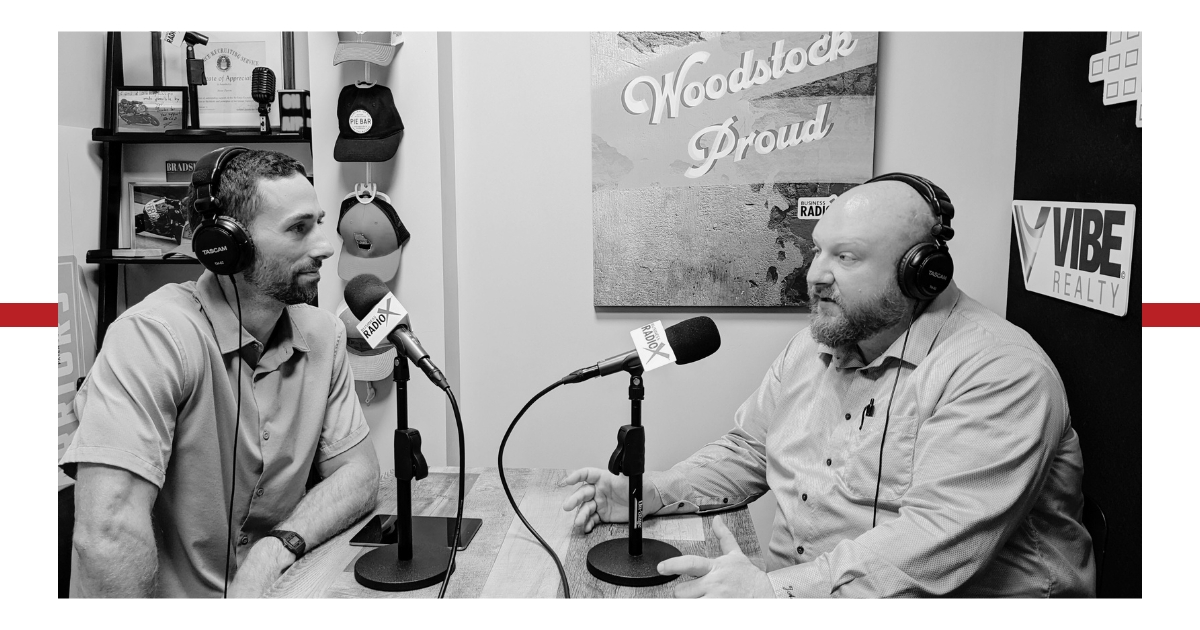

 Dr. Jackson Griffeth, aka “Dr. Jackson”, with
Dr. Jackson Griffeth, aka “Dr. Jackson”, with 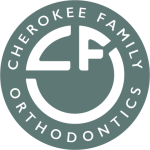

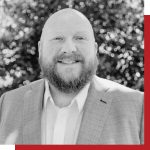 Josh Nelson is passionate about helping families protect their assets through effective legal, tax, and financial strategies.
Josh Nelson is passionate about helping families protect their assets through effective legal, tax, and financial strategies.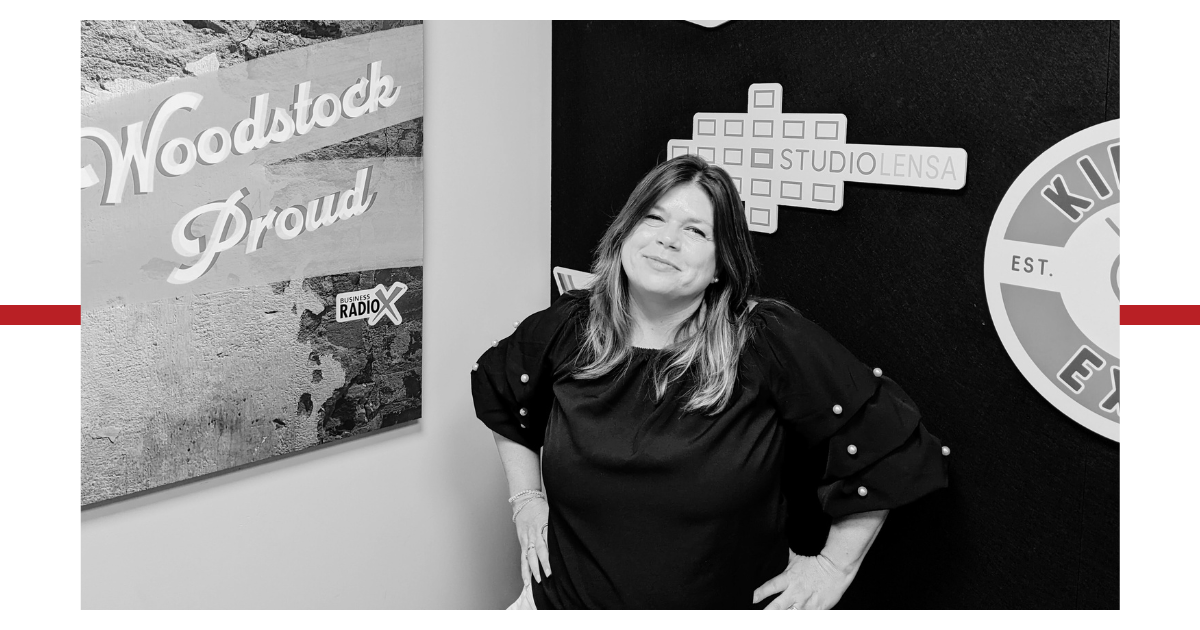
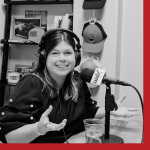 Elizabeth Miller founded
Elizabeth Miller founded 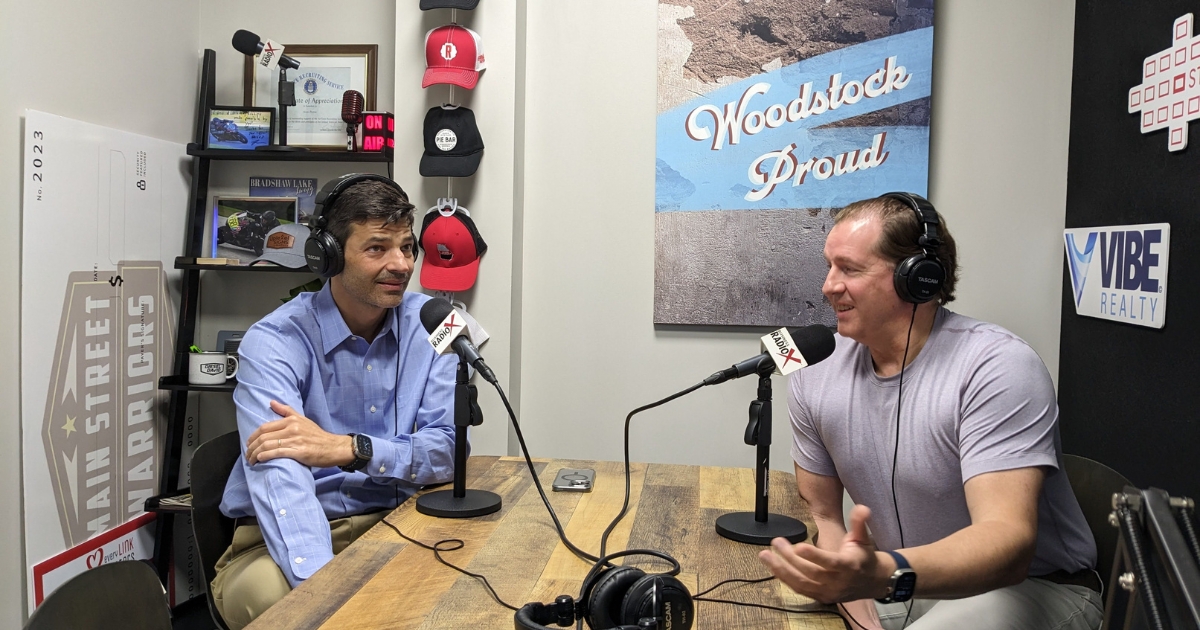
 Dr. Daniel L. Fortes currently serves as the Division Chief of Thoracic Surgery at WellStar Health System, headquartered in Marietta, Georgia.
Dr. Daniel L. Fortes currently serves as the Division Chief of Thoracic Surgery at WellStar Health System, headquartered in Marietta, Georgia.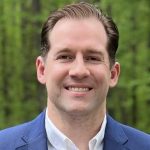 Will Chilvers is the Director of Outpatient Imaging Services at Northside Hospital in Atlanta, Georgia. With over 15 years of experience in the healthcare industry, his career began in 2008 at Emory Healthcare, where he swiftly advanced from intern to Clinical Operations Manager of The Emory Eye Center within two years.
Will Chilvers is the Director of Outpatient Imaging Services at Northside Hospital in Atlanta, Georgia. With over 15 years of experience in the healthcare industry, his career began in 2008 at Emory Healthcare, where he swiftly advanced from intern to Clinical Operations Manager of The Emory Eye Center within two years.
 Jess Toolson is a mother of three and the CEO of
Jess Toolson is a mother of three and the CEO of  Courtney Williams is co-founder and CEO of
Courtney Williams is co-founder and CEO of 
 Dr. Pamela Williamson, President & CEO of
Dr. Pamela Williamson, President & CEO of 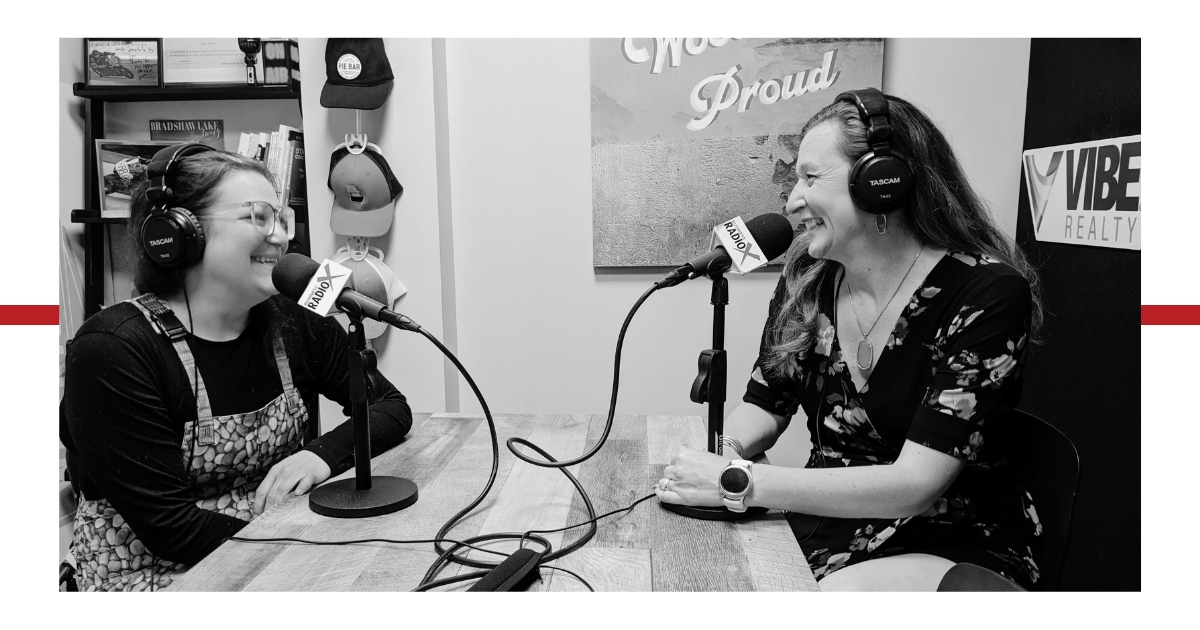
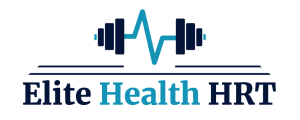
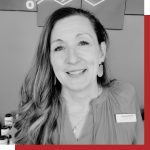 After spending years in the nursing field, Kitty Houston, owner
After spending years in the nursing field, Kitty Houston, owner  Carrie Soulliere is a licensed insurance agent and Owner of
Carrie Soulliere is a licensed insurance agent and Owner of 